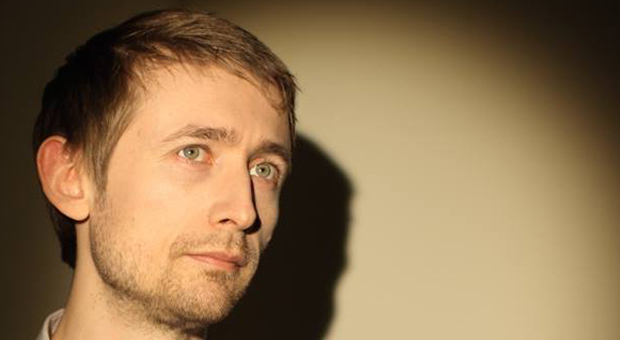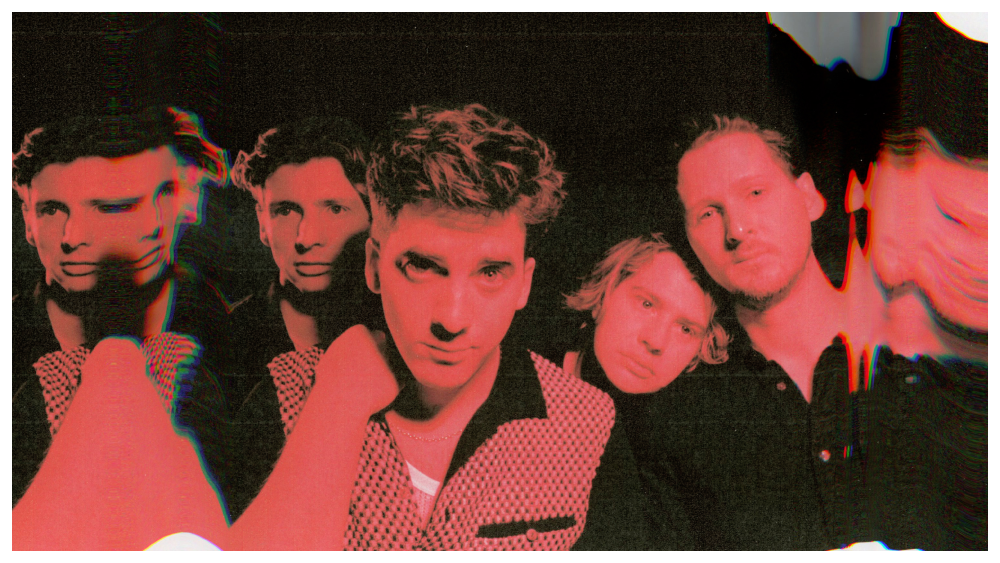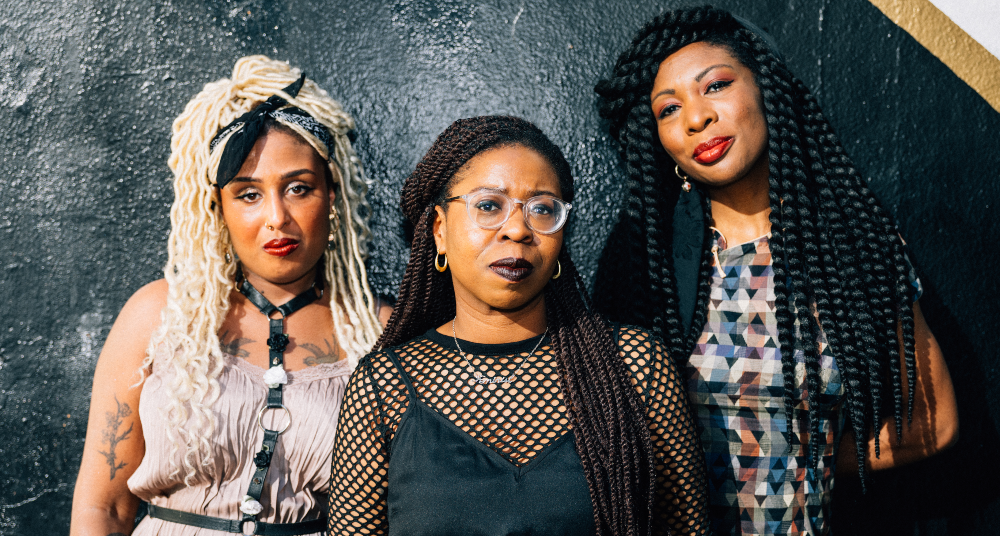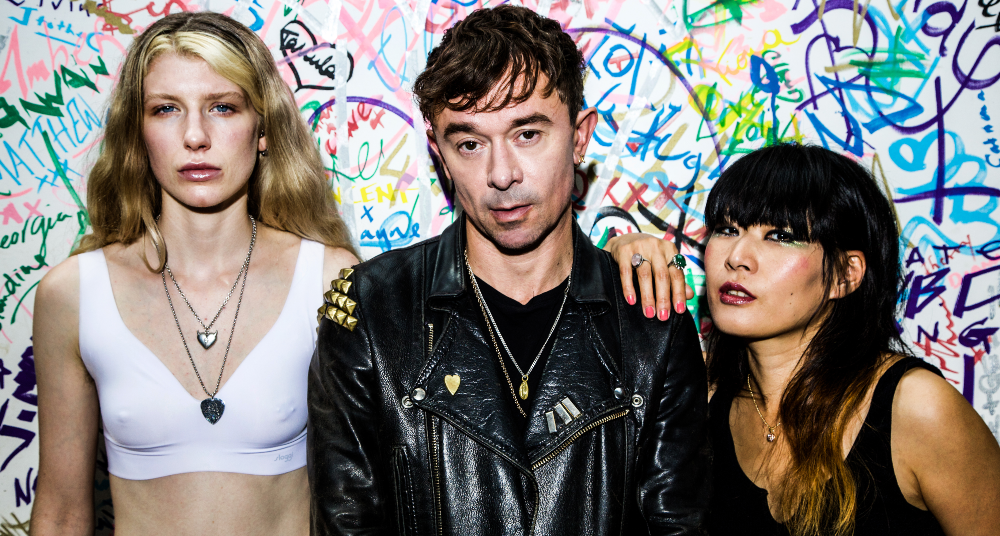‘The single hardest thing for any pop musician is to stay in any way relevant to contemporary society,’ says The Divine Comedy lynchpin Neil Hannon.
‘There are plenty of great artists who’ve made three or four good albums and they keep making records but nobody bothers to listen to them anymore, because why would you? They’re just completely not important.’
He’s explaining why it’s become increasingly important for him to be honest with himself and write exactly what's in his head, how he likes, rather than pander to public taste.
It’s a bold stance that has held true for most of his career to date; through many iterations of baroque pop outfit The Divine Comedy and beyond into The Duckworth Lewis Method with Thomas Walsh.
Neil has been releasing records as the former since 1990, coming into his own later that decade with monster albums Casanova, A Short Album About Love, Fin de Siecle and Regeneration. At the time, his wry songwriting nous helped redefine the notion of Britpop and brought orchestral theatrics into the Top 40.
In total, he's released 10 artist albums, with another expected in 2016. He’s also known for his madcap musical projects for stage and screen, which have seen him take on an opera for the Royal Opera House and deliver a commission for organ at the Royal Festival Hall. Neil’s also credited for creating the theme to much-loved Irish comedy Father Ted and more recent hit The IT Crowd.
Last month he received a Legend Award from Belfast music hub, Oh Yeah Centre, which acknowledged his pivotal place in the story of Northern Irish pop.
We spent some time with him to learn more about his early London squat experiences, his heady days in the midst of Britpop and his reincarnation as master of everything…
How did you first get into music? Is it something you’ve always wanted to do?
Crikey, it’s almost impossible to remember a time in my life when I wasn’t interested in doing this. By the time I was seven or eight I was pretty obsessed with my eldest brother’s records, mostly ELO. Also Top of the Pops, which was just like a religion to me. Unfortunately, it clashed with my parents’ religion because every Thursday night was choir practice, which ended at seven o’clock. So it was always a mad dash to try to get my dad to drive us home as quickly as possible to see as much of it as I could.
It was very ironic, really. In the end I suppose I took as much influence from the choir practice as I did from Top of the Pops.
Then I got a guitar off my brother’s friend and attempted to learn that, and it was a snowball effect really. One year it was, ‘Wouldn’t it be fun to be a popstar?’ Then the next year it would be, ‘I think I might have a go at that.’ Then the year after it was like, ‘I really can’t do anything else with my life. I have to be a popstar’. It sounds irrational, but it was all driven by an immense egotism, well, an immense belief in my own ability. It always makes me blush to actually talk about it, but without it I would not still be doing it. But all obstacles were mere nothings compared to my need and belief that I could do it.
‘There are plenty of great artists who’ve made three or four good albums and they keep making records but nobody bothers to listen to them anymore, because why would you? They’re just completely not important.’
He’s explaining why it’s become increasingly important for him to be honest with himself and write exactly what's in his head, how he likes, rather than pander to public taste.
It’s a bold stance that has held true for most of his career to date; through many iterations of baroque pop outfit The Divine Comedy and beyond into The Duckworth Lewis Method with Thomas Walsh.
Neil has been releasing records as the former since 1990, coming into his own later that decade with monster albums Casanova, A Short Album About Love, Fin de Siecle and Regeneration. At the time, his wry songwriting nous helped redefine the notion of Britpop and brought orchestral theatrics into the Top 40.
In total, he's released 10 artist albums, with another expected in 2016. He’s also known for his madcap musical projects for stage and screen, which have seen him take on an opera for the Royal Opera House and deliver a commission for organ at the Royal Festival Hall. Neil’s also credited for creating the theme to much-loved Irish comedy Father Ted and more recent hit The IT Crowd.
Last month he received a Legend Award from Belfast music hub, Oh Yeah Centre, which acknowledged his pivotal place in the story of Northern Irish pop.
We spent some time with him to learn more about his early London squat experiences, his heady days in the midst of Britpop and his reincarnation as master of everything…
How did you first get into music? Is it something you’ve always wanted to do?
Crikey, it’s almost impossible to remember a time in my life when I wasn’t interested in doing this. By the time I was seven or eight I was pretty obsessed with my eldest brother’s records, mostly ELO. Also Top of the Pops, which was just like a religion to me. Unfortunately, it clashed with my parents’ religion because every Thursday night was choir practice, which ended at seven o’clock. So it was always a mad dash to try to get my dad to drive us home as quickly as possible to see as much of it as I could.
It was very ironic, really. In the end I suppose I took as much influence from the choir practice as I did from Top of the Pops.
Then I got a guitar off my brother’s friend and attempted to learn that, and it was a snowball effect really. One year it was, ‘Wouldn’t it be fun to be a popstar?’ Then the next year it would be, ‘I think I might have a go at that.’ Then the year after it was like, ‘I really can’t do anything else with my life. I have to be a popstar’. It sounds irrational, but it was all driven by an immense egotism, well, an immense belief in my own ability. It always makes me blush to actually talk about it, but without it I would not still be doing it. But all obstacles were mere nothings compared to my need and belief that I could do it.
You mentioned the ELO records - is there anyone who’s really influenced you lyrically?
When I started really buying records it was Ultravox, and then it went weird for a year or two when I become the biggest Nick Kershaw fan on the planet. God, I loved him. His lyrics in a way have influenced me simply by the fact that his songs were very definitely always about something. They had very strong imagery and didn’t dwell too much on relationships. It went further than that, which I enjoyed.
But then that kind of fell away when I got massively into U2, which every Irish kid of 15 in 1985 had to do. It was ridiculous. Then as I got into my teens, it’s funny how I feel like music itself seemed to go in parallel development with my own… in the way that U2 broke guitar bands with me. Then suddenly in the late eighties you’ve got Pixies, REM, My Bloody Valentine, all the shoegazers that I loved.
Strangely though, by the time it got to Manchester and the Mondays, who I liked, I almost thought, ‘Why it is changing so soon into this stuff when I preferred the last stuff?’ That was the first time I didn’t go along with the new kind of thing and instead I started listening to Scott Walker.
The first Divine Comedy record – Fanfare for the Comic Muse - was released 25 years ago. Do you remember what you were thinking at the time?
Oh god, Fanfare? Do we have to? I pretty much instantly thought it was rubbish! We were far too young to know any better. You kind of hit and hope. You just make a record and it’s like, ‘Oh my god. We’ve made a record’. Then nobody buys it and you think, ‘Alright. Let’s make another record’.
But it was pretty heavy going for the first few years. There were a couple of abortive trips to London and staying in squats for a month or two until we got depressed and went home. Then in one such squat Kevin and George, who were my band at the time, went, ‘This isn’t very nice. We’re going to university. Goodbye’. I went, ‘Okay, fine. I will make it without you’.
It only took another two or three years to get anywhere close. Thinking about now, it just seems hellish and impossible to fathom how I could bear it, but it’s really just a question of age. You can’t do that sort of thing at 45, but you can at 20.
You really came into your own a couple of years after that. What was going on for you then?
The first full album I did for Keith Cullen of Setanta Records was Liberation. I just had to go home and live in my parents’ attic basically for a year and a half to write it. Then I begged to just go in and record it myself. So I went back to London, lived with my poor brother above a laundrette in Acton and made it in about 10 days.
That was the first moment where I thought, ‘Now, this is sounding like somewhere close to where I was after’. Yes, that record garnered a bit of interest. Then I made another record about six months later because I’d written so many songs in my attic, I had enough to be making record after record.
When I started really buying records it was Ultravox, and then it went weird for a year or two when I become the biggest Nick Kershaw fan on the planet. God, I loved him. His lyrics in a way have influenced me simply by the fact that his songs were very definitely always about something. They had very strong imagery and didn’t dwell too much on relationships. It went further than that, which I enjoyed.
But then that kind of fell away when I got massively into U2, which every Irish kid of 15 in 1985 had to do. It was ridiculous. Then as I got into my teens, it’s funny how I feel like music itself seemed to go in parallel development with my own… in the way that U2 broke guitar bands with me. Then suddenly in the late eighties you’ve got Pixies, REM, My Bloody Valentine, all the shoegazers that I loved.
Strangely though, by the time it got to Manchester and the Mondays, who I liked, I almost thought, ‘Why it is changing so soon into this stuff when I preferred the last stuff?’ That was the first time I didn’t go along with the new kind of thing and instead I started listening to Scott Walker.
The first Divine Comedy record – Fanfare for the Comic Muse - was released 25 years ago. Do you remember what you were thinking at the time?
Oh god, Fanfare? Do we have to? I pretty much instantly thought it was rubbish! We were far too young to know any better. You kind of hit and hope. You just make a record and it’s like, ‘Oh my god. We’ve made a record’. Then nobody buys it and you think, ‘Alright. Let’s make another record’.
But it was pretty heavy going for the first few years. There were a couple of abortive trips to London and staying in squats for a month or two until we got depressed and went home. Then in one such squat Kevin and George, who were my band at the time, went, ‘This isn’t very nice. We’re going to university. Goodbye’. I went, ‘Okay, fine. I will make it without you’.
It only took another two or three years to get anywhere close. Thinking about now, it just seems hellish and impossible to fathom how I could bear it, but it’s really just a question of age. You can’t do that sort of thing at 45, but you can at 20.
You really came into your own a couple of years after that. What was going on for you then?
The first full album I did for Keith Cullen of Setanta Records was Liberation. I just had to go home and live in my parents’ attic basically for a year and a half to write it. Then I begged to just go in and record it myself. So I went back to London, lived with my poor brother above a laundrette in Acton and made it in about 10 days.
That was the first moment where I thought, ‘Now, this is sounding like somewhere close to where I was after’. Yes, that record garnered a bit of interest. Then I made another record about six months later because I’d written so many songs in my attic, I had enough to be making record after record.
What was it like to be in the midst of the Britpop storm?
After the third album, Promenade, I thought, ‘Right. I’ve really got to knuckle down and make the biggest record imaginable’. I could see the way the wind was blowing, and I was interested in the same kind of things as quite a lot of other people seemed to be at the time. It’s funny the way these zeitgeist things happen, but suddenly everybody was looking at John Barry and Morricone and the sixties. It was a bit Austin Powers in a way! And it all went hand in hand with whole laddish thing and Loaded magazine and stuff like that.
I’d actually got laid which was a miracle, so I thought I’d write about it. Then Casanova was born which, to me, was a massive self-parody. You get a bit of luck with the ladies and suddenly you’re Casanova! But it took a long time to make and Keith Cullen [of Setanta Records] didn’t have any money, so he was kind of begging and borrowing studios for months and months and months. I obviously assumed that I was always on the cusp of success, but looking back on it now, it’s dumb luck and really good timing, and a few catchy tunes.
How has The Divine Comedy changed over the years?
It’s always just been the method by which I get my songs into the world. I’m onto my third band, really, and I pick and choose the musicians based on what I’m trying to achieve. I’m in a very pleasant position, really. I’ve had a few hiccups along the way, a few stylistic aberrations when I’m trying to go in a different direction and it suddenly appears I’m not best suited to that direction.
For example, in 2001 we made a record with Nigel Godrich called Regeneration. I looked at the success of Radiohead - and I’m going to be completely upfront about this - and I thought, ‘I can do that. Let’s get their producer. Okay, off we go,’ with a massive new record company budget. That record works well within itself, but really it was a complete cul-de-sac creatively because I didn’t really feel like it was me. It was a small part of me, the slightly depressed part. It doesn’t have the necessary humour in it or genre hopping. It’s too involved with itself, and I recognised that quite quickly afterwards. My next album, Absent Friends, was virtually just a Scott Walker record and I really enjoyed myself. So I thought, ‘Right, that’s what I’ll do from now on. I’ll just do what I enjoy,’ and people seem to like that.
So does each experience feed into the next one then? Are you constantly learning and trying new stuff?
Yes. I mean, the single hardest thing for any pop musician is to stay in any way relevant to contemporary society, because there are plenty of great artists who’ve made three or four good records and then keep making records but nobody bothers to listen to them anymore, because why would you? They’re just completely not important. I think I benefit from the fact that I was never important at all, and I was never hugely famous. I had a brief notoriety and I enjoyed my appearances on Top of the Pops. It was what needed to happen for me to feel that I’d made it, and it also needed to happen to make enough money to make the next record I thought.
But with writing, it has just become increasingly important to be completely honest with myself and write exactly what I want to write and not give a hoot about public taste, because that way disaster lies. If you try and chase after a fashion, it’s a complete disaster.
After the third album, Promenade, I thought, ‘Right. I’ve really got to knuckle down and make the biggest record imaginable’. I could see the way the wind was blowing, and I was interested in the same kind of things as quite a lot of other people seemed to be at the time. It’s funny the way these zeitgeist things happen, but suddenly everybody was looking at John Barry and Morricone and the sixties. It was a bit Austin Powers in a way! And it all went hand in hand with whole laddish thing and Loaded magazine and stuff like that.
I’d actually got laid which was a miracle, so I thought I’d write about it. Then Casanova was born which, to me, was a massive self-parody. You get a bit of luck with the ladies and suddenly you’re Casanova! But it took a long time to make and Keith Cullen [of Setanta Records] didn’t have any money, so he was kind of begging and borrowing studios for months and months and months. I obviously assumed that I was always on the cusp of success, but looking back on it now, it’s dumb luck and really good timing, and a few catchy tunes.
How has The Divine Comedy changed over the years?
It’s always just been the method by which I get my songs into the world. I’m onto my third band, really, and I pick and choose the musicians based on what I’m trying to achieve. I’m in a very pleasant position, really. I’ve had a few hiccups along the way, a few stylistic aberrations when I’m trying to go in a different direction and it suddenly appears I’m not best suited to that direction.
For example, in 2001 we made a record with Nigel Godrich called Regeneration. I looked at the success of Radiohead - and I’m going to be completely upfront about this - and I thought, ‘I can do that. Let’s get their producer. Okay, off we go,’ with a massive new record company budget. That record works well within itself, but really it was a complete cul-de-sac creatively because I didn’t really feel like it was me. It was a small part of me, the slightly depressed part. It doesn’t have the necessary humour in it or genre hopping. It’s too involved with itself, and I recognised that quite quickly afterwards. My next album, Absent Friends, was virtually just a Scott Walker record and I really enjoyed myself. So I thought, ‘Right, that’s what I’ll do from now on. I’ll just do what I enjoy,’ and people seem to like that.
So does each experience feed into the next one then? Are you constantly learning and trying new stuff?
Yes. I mean, the single hardest thing for any pop musician is to stay in any way relevant to contemporary society, because there are plenty of great artists who’ve made three or four good records and then keep making records but nobody bothers to listen to them anymore, because why would you? They’re just completely not important. I think I benefit from the fact that I was never important at all, and I was never hugely famous. I had a brief notoriety and I enjoyed my appearances on Top of the Pops. It was what needed to happen for me to feel that I’d made it, and it also needed to happen to make enough money to make the next record I thought.
But with writing, it has just become increasingly important to be completely honest with myself and write exactly what I want to write and not give a hoot about public taste, because that way disaster lies. If you try and chase after a fashion, it’s a complete disaster.
Where do you feel most comfortable these days – is it still within the band set-up or doing commissions for TV and concert halls?
I guess I feel most comfortable writing my albums because they are the rawest kind of Hannon brain you know? There is nobody suggesting an idea, there’s no plot that you’re trying to write to. It is me, neat. So that’s the most satisfying. It’s also the hardest to finish as well, because once you’ve finished a record then it’s back to the slightly more giving, sociable aspects of music where you have to go out and play to people and talk to people and stuff like that.
The hard bit?
Yes, the hard bit. But I wouldn’t do the other things like the TV themes and the musicals and concert pieces if I didn’t enjoy them and I wasn’t challenged by them. I really like to see if I can do certain things, and quite often I’m proved wrong, but you never know until you try.
So what’s next for you?
I’ve literally just finished mixing a new Divine Comedy album. It has been about five years since the last one, so I felt it was time. I guess the promotion of that will take up most of next year, really.
What can we expect from it?
Some rollicking good tunes! And some slightly infuriating and confusing lyrics.
I guess I feel most comfortable writing my albums because they are the rawest kind of Hannon brain you know? There is nobody suggesting an idea, there’s no plot that you’re trying to write to. It is me, neat. So that’s the most satisfying. It’s also the hardest to finish as well, because once you’ve finished a record then it’s back to the slightly more giving, sociable aspects of music where you have to go out and play to people and talk to people and stuff like that.
The hard bit?
Yes, the hard bit. But I wouldn’t do the other things like the TV themes and the musicals and concert pieces if I didn’t enjoy them and I wasn’t challenged by them. I really like to see if I can do certain things, and quite often I’m proved wrong, but you never know until you try.
So what’s next for you?
I’ve literally just finished mixing a new Divine Comedy album. It has been about five years since the last one, so I felt it was time. I guess the promotion of that will take up most of next year, really.
What can we expect from it?
Some rollicking good tunes! And some slightly infuriating and confusing lyrics.





